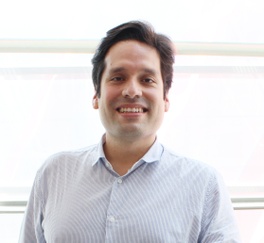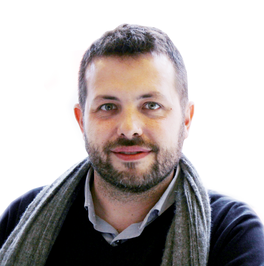2022 edition | Barcelona Summer School in Global Politics, Development and Security
Alvaro Artigas is an associate researcher at the Centre for European Studies and Comparative Politics and a member of the Sciences Po program of urban research “Cities are Back in Town” and is a member of the strategic committee of the Chaire Villes et Numérique at the Urban School at Sciences Po. His research focuses on the complexity of regional and metropolitan infrastructure development programs and their specific sectoral, environmental and territorial consequences. It addresses the coordination of integrated infrastructure development policies, big data and ICTs coordination mechanisms and public services in terms of international competitiveness, integration into the global economy. and sustainable growth strategies.
Laia Balcells is a Provost’s Distinguished Associate Professor of Government at Georgetown University. She is also core faculty of the M.A. in Conflict Resolution, and member of the BMW Center for German and European Studies. Her research and teaching are at the intersection of comparative politics and international relations. She focus on civil wars, terrorism, nationalism, ethnic conflict, and transitional justice after armed conflict. She has been an Assistant Professor of Political Science at Duke University (2012-2017), a Niehaus Visiting Associate Research Scholar at the School of Public and International Affairs at Princeton University (2015-16), and Chair of Excellence at Universidad Carlos III de Madrid (Spring 2017). Her first book, Rivalry and Revenge: the Politics of Violence during Civil War, was published in 2017 by Cambridge University Press (Cambridge Studies in Comparative Politics).
Anthony Bertelli studies the role of political institutions in shaping public policy outcomes and organizational structures. He has been particularly interested in the relationship between public administration and democracy. Tony has published more than 50 articles and six books including Democracy Administered: How Public Administration Shapes Representative Government (Cambridge University Press, 2021). The research agenda in Chapter 5 of that book is the subject of an Advanced Grant from the European Research Council that he is implementing at IBEI through 2026. Tony is also the Senior Executive Editor of the Journal of Public Policy.
Arthur Holland Michel is a writer and researcher. He is currently a Senior Fellow at the Carnegie Council for Ethics in International Affairs. He has written about drones, surveillance, artificial intelligence, robots, and the arts for Wired, Vice, Foreign Policy, The Atlantic.com, The Verge, Fast Company, Motherboard, Al Jazeera America, Bookforum, The Bulletin of the Atomic Scientists, Mashable Spotlight, and an Oxford Research Encyclopedia, among other outlets. His first book, Eyes in the Sky, about the rise of advanced aerial surveillance technology, was published by Houghton Mifflin Harcourt in June 2019. Arthur is a founder of the Center for the Study of the Drone, a research institute at Bard College in New York State where he served as co-director from 2012 to 2020. During 2019 and 2020 he was visiting research fellow at the Institut Barcelona d’Estudis Internacionals (IBEI).
Branko Milanovic is a Visiting Presidential Professor at the Graduate Center City University of New York and Senior Scholar at the Stone Center for Socio-economic Inequality. He obtained his Ph. D. in economics (1987) from the University of Belgrade with a dissertation on income inequality in Yugoslavia. He served as lead economist in the World Bank’s Research Department for almost 20 years, leaving to write his seminal book on global income inequality, Worlds Apart (2005). He was senior associate at the Carnegie Endowment for International Peace in Washington (2003-2005) and has held teaching appointments at the University of Maryland (2007-2013) and at the Paul H. Nitze School of Advanced International Studies at Johns Hopkins University (1997- 2007).
Anastassia Obydenkova holds a PhD in Political and Social Science from the European University Institute (Florence) and MA with Honor in Political Science from the Central European University (Vienna). She was awarded research fellowships at Yale, Princeton, and Harvard Universities. Currently, Dr. Obydenkova is an associate professor in Uppsala University (Sweden), a research affiliate at the Institute for Economic Analysis of the Spanish Council for Scientific Research (Barcelona) and the IBEI (Barcelona). She studies comparative politics and international relations with special focus on international organizations, global environmental politics and sustainable development, regionalism, democratization, post-Communism, with area-focus on Eurasia and China. She is also a co-author and editor of various books with the most recent ones published by Oxford University Press (2019) and Cambridge University Press (2021).
Martin Shaw is a historical sociologist of global politics, war and genocide. His books include Marxism and Social Science (1974), Dialectics of War (1988), Post-Military Society (1991), Civil Society and Media in Global Crises (1996), Theory of the Global State (2000), War and Genocide (2003), The New Western Way of War (2005), What is Genocide? (2007) and most recently Genocide and International Relations: Changing Patterns in the Transitions of the Late Modern World (2013). He is Research Professor at the Institut Barcelona d’Estudis Internacionals (IBEI), Professorial Fellow in International Relations and Human Rights at the University of Roehampton, London, and Emeritus Professor of International Relations at the University of Sussex.
Karen E Smith is a Professor of International Relations and Head of the Department of International Relations at the London School of Economics and Political Science. Her main area of research is the ‘international relations of the European Union’, and she has written extensively on the formulation and implementation of common EU foreign policies. She has examined the EU’s pursuit of ‘ethical’ foreign policy goals such as promoting human rights and democracy, and policy-making within European states regarding genocide. For over a decade she has also analysed EU-UN relations, and more recently has extended her research to consider the role of other political and regional groups in UN diplomacy. She is now working on projects on women in foreign policy-making and diplomacy, and on the role of that emotions play in EU foreign policy-making. She teaches a course on the EU in the world, and supervises PhD students working on EU foreign relations.
Eduard Soler i Lecha is a Senior Research Fellow at CIDOB (Barcelona Centre for International Affairs). Between 2016 and 2019, he was scientific coordinator of MENARA, a European project on geopolitical shifts in the Middle East and North Africa. He holds a PhD in International Relations from the Universitat Autònoma de Barcelona. Dr. Soler i Lecha is a political scientist and a part-time lecturer in International Relations at the Institut Barcelona d’Estudis Internacionals and at Ramon Llull-Blanquerna University. From 2013 to 2017 he lead the El Hiwar project on Euro-Arab diplomacy at the College of Europe (Bruges) and in 2010 he was seconded to the Spanish Ministry of Foreign Affairs as an advisor in the Direction General for the Mediterranean, the Maghreb and the Middle East.
Lurdes Vidal is the Director of the Arab and Islamic World Department at IEMed. Having held various positions at the IEMed since 2003, Lurdes is now the Editor-in-Chief of the journal afkar/idees, Sientific Coordinator of MAGIC (Muslim women and communities Against Gendered Islamophobia in soCiety), and Sientific Coordinator of CONNEKT, H2020 research project, which studies the drivers of radicalisation and violent extremism among youth in MENA and the Balkans. She lectures on Mediterranean, Arab and Islamic Studies at the Universitat de Barcelona, at the Institut Barcelona d'Estudis Internacionals (IBEI) and at Blanquerna-Ramon Llull University. Graduated in Translation and Interpreting from the Universitat Autònoma de Barcelona, she lived in Damascus before studying International Relations and becoming a translator for migrant-related and development cooperation organisations.
Pere Vilanova is a Professor of Political Science and the Administration, Faculty of Law, UB. Lecturer in the Department of Constitutional Law and Political Science, Faculty of Law, UB. From 1994 to 1999 he was Head of Studies for the degree course in Political Science and the Administration, and from 1999 to 2003 he was director of the department’s. He has given classes and seminars in Nicaragua, Bosnia-Herzegovina, Serbia and Montenegro, France, the United Kingdom, Italy, Holland, Mexico, the United States, Canada, the Middle East, China, Japan and other countries. From 1993 to 2003 he was a magistrate in the Constitutional Court of Andorra, and from 2000 to 2002, he was the court's president. In 1996, he was head of the legal office of EUAM (European Union Administration of Mostar). Adviser to Mr Carlos Westendorp, Head of the OHR (Office of the High Representative) in Bosnia-Herzegovina in 1998 and 2000.










